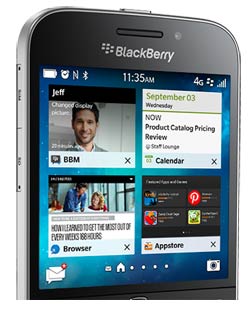When people refer to mobile operating systems, they are generally talking about iOS and Android. But there are a group of wannabe OSes hanging around the fringes, hoping to be a third choice, because in the mobile OS business, being third is a valuable and potentially lucrative position.
Two of the candidates for this coveted spot are Microsoft’s Windows Phone and BlackBerry.
Time may be growing short for Windows Phone, though. BGR takes a rather grim view of the Windows OS’ future. The headline of the story, which refers to the Windows Phone “circling the drain,” sets the tone of the article:
2014 has been a very bad year for Windows Phone. Not only has the platform’s market share been stagnant at best but it’s been more than a year since we’ve seen any flagship Windows Phone hardware on par with 2013’s Lumia 1020 or Lumia 1520. In that time, Apple has released both the iPhone 6 and the iPhone 6 Plus and Android fans have had a feast of riches in the form of high-end flagship devices from Samsung, HTC, Motorola, LG and OnePlus. Even BlackBerry has made its diehard fans happy with the release of the beastly BlackBerry Passport.
Two high-profile Windows Phone proponents, ZDNet’s Ed Bott and The Verge’s Tom Warren, are down on the product. But BGR suggests that the problem isn’t technical. Indeed, he lauds the platform itself. The issue is that Microsoft didn’t proactively take on iOS and Android.
Windows Phone numbers indeed are down as Motley Fool reports that IDC says that the OS has moved from a small market share, 3.6 percent in the third quarter of 2013, to an even slimmer 2.9 percent in this year’s third quarter.
The site offered four suggestions on how Microsoft can reverse the performance. First, the company should expand beyond its own Lumia device and cultivate more hardware partners. Microsoft should also provide more definition between high- and low-end Lumias and upgrade the apps in the Windows Phone Store, because to date, the store is dominated by “old hand-me-down apps.” Finally, Microsoft should bury the hatchet with Google to get access to services that currently are blocked, such as Google Maps and YouTube.
Microsoft’s lack of support for Windows Phone notwithstanding, it is interesting to note that the Lumia Denim update either has begun or is near. GottaBeMobile writes that Chinese users are getting the update and that Microsoft has uploaded a guidance video to YouTube. The story explains that Denim is a “small feature bump for Windows Phones running Windows Phone 8.1.” Some of the improvements are for all Windows Phones and others only for Lumia, the story says.

The story says that the BlackBerry phone is buttressing classic features with new elements, and still offers a physical keyboard and messaging hub along with extended battery life.
The two big winners in the smartphone OS wars are Google and Apple, and that won’t change. The sector is evolving, however. Innovation is slowing as just about everything folks need already is available, and less expensive devices for developing economies are moving to center stage. There is room for a third player just behind the top two, so the year ahead will go a long way toward determining which OS it is.
Carl Weinschenk covers telecom for IT Business Edge. He writes about wireless technology, disaster recovery/business continuity, cellular services, the Internet of Things, machine-to-machine communications and other emerging technologies and platforms. He also covers net neutrality and related regulatory issues. Weinschenk has written about the phone companies, cable operators and related companies for decades and is senior editor of Broadband Technology Report. He can be reached at [email protected] and via twitter at @DailyMusicBrk.



